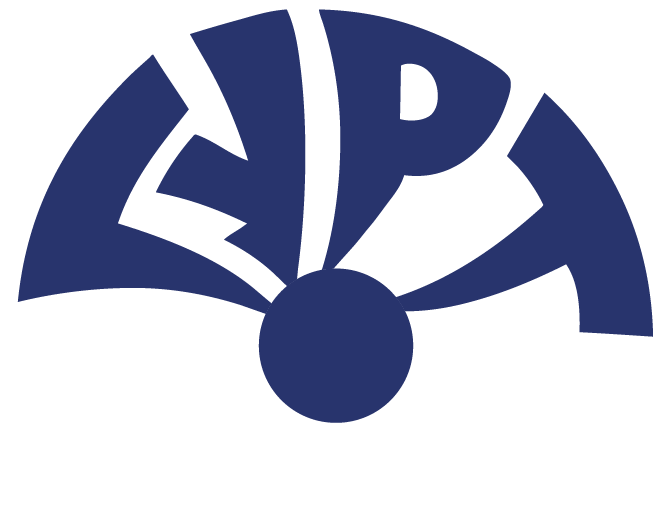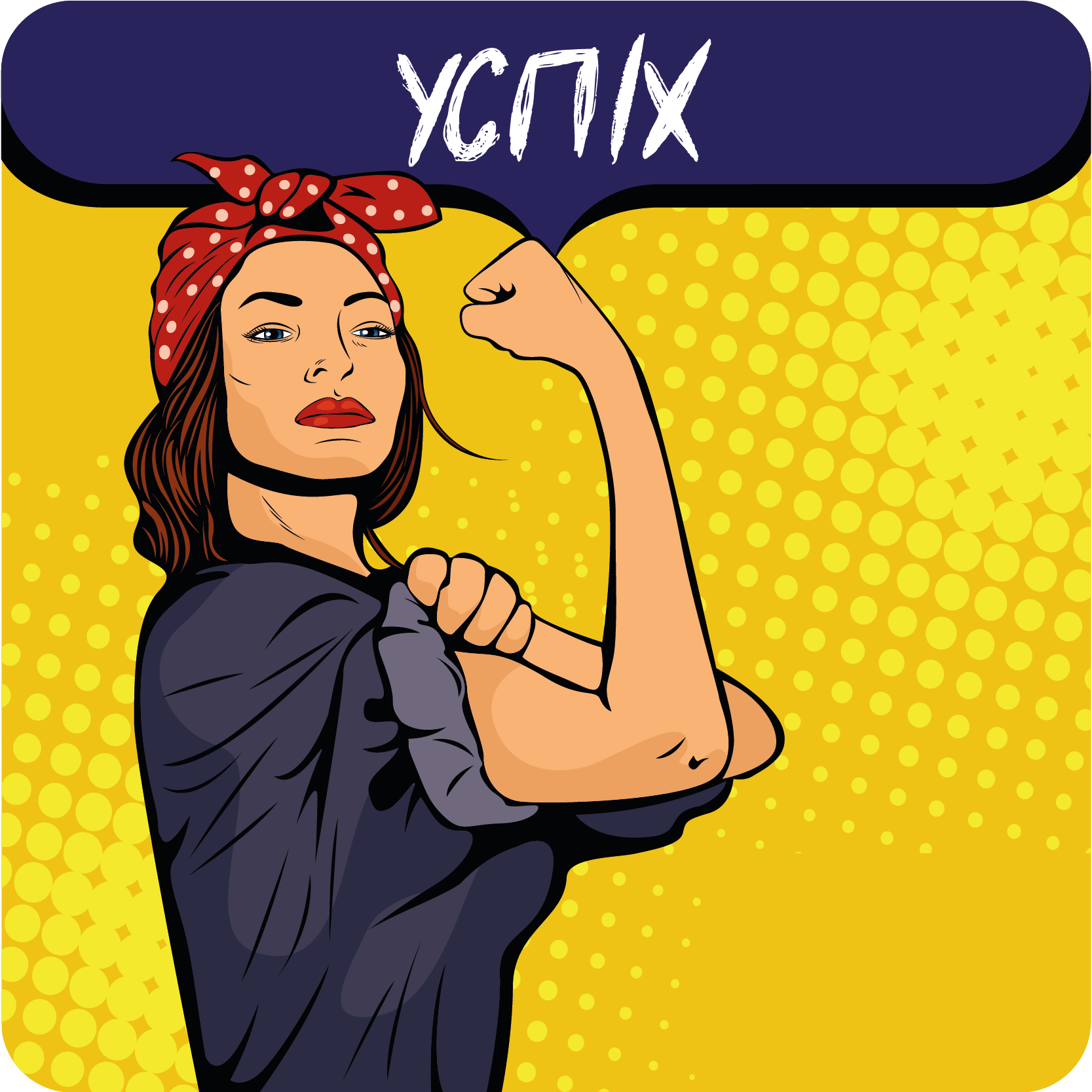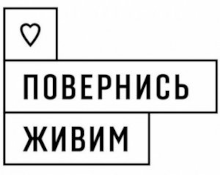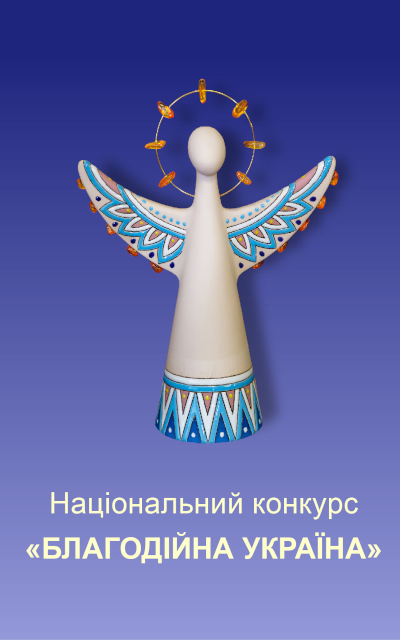


CDF Canada is looking for a Baseline Study expert
20.07.2021
Terms of Reference
Baseline Study
Supporting Economic Prosperity for Women and Internally Displaced Persons in Ukraine (SEW Ukraine)
Implemented by CDF Canada and Charity Foundation Gorenie with support from the Government of Canada/Global Affairs Canada
Assignment location: Ukraine, Kyiv, Kharkiv, and Dnipropetrovsk regions
Timeframe: 2 months
The Co-operative Development Foundation of Canada (CDF Canada) is seeking a qualified consultant (individual or firm) to undertake a Baseline Study forthe SEW Ukraine project. This assignment will include the preparation of a consolidated information base for project results/targets at ultimate, intermediate, immediate and if possible, at output levels.
- 1. Project Background
SEW Ukraine is a five-year (2020-2025) project, funded by Global Affairs Canada (GAC) and is being implemented by CDF Canada in partnership with the All-Ukrainian Charity Foundation “Gorenie” (CF Gorenie). The project works to enhance employment and entrepreneurship opportunities in the garment industries for vulnerable and internally displaced women living in Kyiv, Kharkiv, and Dnipropetrovsk oblasts (regions) of Ukraine. It is expected that 2,200 women will directly benefit from the project (with 5,720 individuals benefiting indirectly from the increased economic empowerment of their household).
The Ultimate Outcome of the SEW Ukraine project is to enhance economic prosperity for 2,200 women, including internally displaced women, in the regions of Kyiv, Kharkiv, and Dnipro in Ukraine. This is based on the following two intermediate outcomes:
- Enhanced employment and entrepreneurship opportunities in the garment sector for vulnerable and internally displaced women living in Kyiv, Kharkiv, and Dnipropetrovsk oblasts. (Intermediate Outcome 1100)
- Enhanced competitive, innovative, and environmentally sustainable micro, small, and medium-sized enterprises (MSMEs) within the garment sector for women in Kyiv, Kharkiv, and Dnipropetrovsk oblasts. (Intermediate Outcome 1200)
Project activities are designed to achieve the project’s result areas stated above.
The SEW Ukraine project will foster economic prosperity for vulnerable women, including Internally Displaced Persons (IDPs), in Ukraine by addressing the economic barriers which limit their full and meaningful participation in Ukraine’s workforce. The project will explicitly target women IDPs, women with disabilities, and women living in rural or peri-urban areas, who struggle with economic survival, meeting basic needs for their families and face increased vulnerability to poverty.
Co-operative Development Foundation of Canada (CDF Canada)
CDF Canada is registered as a charity in accordance with the laws of Canada. The organization was established in 1947 and is headquartered in Ottawa. In 2017, Canada. CDF Canada amalgamated with the Canadian Co-operative Association. CDF Canada is governed by an independent Board of Directors made up of 11 individuals with strong links to Canada’s co-operative business and international development sectors. Canada has a network of 8,500 cooperatives and credit unions, with total assets of over $508 billion and 182,000 employees. Canadian co-operators have engaged internationally for more than 70 years through CDF Canada. CDF Canada’s mission is to establish and grow co-ops internationally that build a better world, where individuals and communities thrive economically, socially, and culturally. Climate resilience and gender are key cross-cutting priorities in all of CDF Canada’s programs. For more information about CDF Canada, please visit the website at http://cdfcanada.coop/
Charitable Foundation “Gorenie”
Charitable Foundation “Gorenie” is a charitable organization founded in 2005 in Ukraine with the purpose to protect the rights and freedoms, as well as to assist people in difficult life circumstances. Since 2008, the CF Gorenie has been implementing activities aimed at providing free legal aid to the poor. Since 2014, the Foundation’s target group has been internally displaced persons and victims of the conflict in eastern Ukraine. Gorenie’s programs have included activities aimed at providing free legal aid to internally displaced persons, administering a microgrant program to support the development of self-employment of internally displaced persons, and implementing programs to protect vulnerable women living in the East of Ukraine and affected by domestic and gender violence, as well as cooperation with local authorities in the development of conflict-affected communities.
- 2. Country Context
A limited range of opportunities for employment in Ukraine has been identified as one of the key barriers to improving the quality of life for vulnerable women, particularly IDPs and women with disabilities. Supporting employment and entrepreneurship has been identified as an important element towards their economic empowerment and overall well-being. After a rapid economic sector scan, the garment industry was identified as being the sector with the most potential to provide economic opportunities to SEW Ukraine Project beneficiaries (vulnerable women) and improve their quality of life.
The garment industry was selected based on the following criteria: the size and growth potential of the garment industry in the target regions, its market structure, and the potential for positive impact on the broadest number of beneficiaries and stakeholders. The garment sector is also an industry where small and medium enterprises prevail, leading to significant potential for new start-ups and supporting individuals to create their businesses. Regions, selected by the project, are among those with the largest number of IDP registered. The geographic focus on Kharkiv, as one of the three regions selected for project implementation, is expected to allow to capitalize on the many advantages offered by the ‘textile capital of Ukraine’.[1]
- 3. Baseline Purpose and Objective(s)
A baseline study will be completed at the initial phase of the project to measure the status of selected indicators and to understand the starting point of key elements of the work against which later progress will be measured. The baseline study should be meaningful, relevant, cost effective and practically implementable. The study should be closely linked with the critical aspects of the activity monitoring plan so that the data collected can be replicated, if necessary, during ongoing activity monitoring and any subsequent evaluations to measure the development results. In so doing, the baseline should complement the timelines and targets set in the Performance Management Framework (PMF) of the SEW project.
The key objective of the baseline is to:
- Determine the baseline against expected project targets, assess current level of project beneficiaries’ (vulnerable women, incl. IDPs and women with disabilities) living standard and provide baseline data to the Ultimate Outcome 1000 which refers to “Enhanced economic prosperity for vulnerable women, including internally displaced women, in in the regions of Kyiv, Kharkiv, and Dnipro in Ukraine”. The relevant indicator for this outcome is 1000.1. # women [2] /total target beneficiaries who indicate an improvement in their standard of living.[3]
In addition to ultimate outcome, baseline assessment is expected to provide information against the following indicators:
- 1100.1. #/total of initiative adopted by stakeholders to increase the employment opportunities for TP. Provide data on the current uptake of new strategies, plans, practises that is being adopted by employers and other stakeholders to increase employment opportunities of TP.
- Current level of support provided by male community members to their women counterparts. The relevant indicator for this outcome is 1130.2. %/total of male community members (men and boys) who have reported to provide increased level of support to their women counterparts.
- Number of existing partnerships of women owned or managed MSMEs with garment industry partner. The relevant indicator for this outcome is 1220.1. #/total women owned/managed MSMEs established partnerships with strategic partners.
- Number of existing funding sources available for MSMEs in the garment sector of Ukraine in target regions. The relevant indicator for this outcome is 1214.2. #/total members (disaggregated W/M) have access to different funding sources/options.
- 4. Baseline Target Audiences
The project aims to reach a total of 2,200 direct beneficiaries - vulnerable or marginalized women [4] (50% of women will be IDPs, 10% will be women with disabilities) living in the Kyiv, Kharkiv and Dnipropetrovsk oblasts of Ukraine. 2,000 women will be supported to access employment, including through vocational training or workplace integration training. Hundred women will be supported to establish new MSMEs [5]. Also, 100 women who own or manage [6] existing micro, small, or medium enterprises will also be supported to access business resources.
Indirectly, at least 5,720 individuals will benefit from the increased economic empowerment of a member of their household, but also through value chain development and new business partnerships, improved workplace policies and practices that will address gender equality, discrimination and work safety issues.
The primary Target Population (TP) for the SEW Ukraine project is internally displaced and local women living in rural and peri-urban areas who are classified as having “difficult life circumstances” [7], with a particular focus on women with disabilities and other vulnerable groups including pensioners/older women, single mothers, national minorities including the Roma population, and LBTQ+ individuals.
In addition, intermediaries will include a significant number of community members (including both men and women), employers, industry associations, government bodies, financial institutions, input suppliers, other value chain actors and local and international NGOs, that will be benefiting from the project while contributing towards the achievement of project’s ultimate outcome.
The baseline study, therefore, will include but not be limited to project target population (including key informants, women in search of work and vulnerable groups, small producers of clothing, textiles, souvenirs, car interiors (fabric and leather components), repair shops specializing in clothing repairs, and production suppliers), industry experts and associations, government bodies, public/private sector strategic partners (including major garment sector employers). The assessment will be conducted in selected project sites across Ukraine (Kharkiv, Dnipropetrovsk, and Kyiv regions).
- 5. Methodology
The CDF Canada will select a local research consultant/institution to conduct the baseline study. The selected research consultant will be required to prepare detailed research methodology in alignment with CDF Canada. The consultant will be expected to undertake data gathering visits to 3 regions of Ukraine, and co-ordinate data gathering with the SEW Ukraine team, including the implementing partner (Foundation Gorenie).
Baseline study will be proposed to apply both quantitative and qualitative data collection methods.
- 1. Quantitative data collection methods: Reference source of this survey is the project Logic Model. Possible key respondents or data sources are initially determined by project team; however, the detailed data source and methods, sampling and full questionnaires are required from consultant/institution. Project targeted families including vulnerable women will be selected by project team prior to data collection. Consultant team should submit the draft household (HH) survey questionnaire when providing the technical proposal to CDF Canada for tender selection process. The team should state its purpose for using the HH survey method.
- 2. Qualitative data collection methods: Focus group discussions and key informant interviews with partners and stakeholders are to be considered. Consultant/team will present their approach to using FGDs and KII and will identify the number of sessions/interviews and stakeholders to be interviewed based on information needs. All suggested tools will be discussed with CDF Canada for approval.
- 3. Document Review: The subcontractor/consultant will use all project documents and other available documents for desk research. Following the signing of contract, the project team will provide the project documents. Other secondary data sources are strongly encouraged to be used for further situation analysis.
- 4. Data analysis and interpretation: Primary data and data analysis processes will be disaggregated by gender and target groups (women in search for employment, type of vulnerability (e.g. IDPs, women with disabilities etc.) and ownership of MSMEs. Draft findings will be presented to project team for validation as per the pre-approved workplan.
- 6. Consultant Responsibilities:
Once selected, the consultant is expected to undertake the key tasks below:
I. Planning Phase
- Conduct desk study of all relevant project documents, including the PMF, logic model, theory of change, needs assessment study findings, relevant elements of the project’s implementation plan.
- Finalize the assessment framework and methodology in conjunction with CDF Canada, on following accounts:
- Finalize the assessment questionnaires with guidelines on administering different data collection methods. This should be tailored in consultation with partners and key stakeholders.
- Provide a robust data collection methodology.
- Identify the sampling size and composition of the research participants, incl. communities name, population size, gender and vulnerability disaggregation etc. to conduct the survey, incl.: Provide appropriate justification if an appropriate sample size cannot be reached.
- Determine the mode of cooperation with the CDF Canada project team in Ukraine.
- Prepare a detailed Inception Report including the final workplan as per the approved timeline.
II. Data Collection Phase
The consultant/subcontractor will be expected to travel to at 3 regions of Ukraine (Kharkiv, Dnipropetrovsk, and Kyiv regions) to collect data. The co-implementing partner will provide assistance with the location of the participants, logistics of the meetings, and will provide some information from the existing project databases. Where deemed essential, data will be collected remotely due to COVID-19 pandemic-related restrictions. [8]
Data collection phase includes:
- A cabinet phase will focuse on the secondary data collection and analysis. Types of data can include census and other surveys by government agencies, special studies by NGOs/donors, university research studies, mass media (newspapers, radio, TV), etc.
- A field phase will include qualitative and quantitative data collection following the framework and methodology approved by CDF Canada during planning phase.
III. A reporting phase, including:
- Data processing, analysis followed by development of a draft report and presenting findings to the project stakeholders. This will include the following:
- The draft baseline study report should be based on the data collected through primary and secondary sources), in accordance with CDF Canada’s guidelines. Besides reporting on the findings, the consultant must provide a detailed section on recommendations. This includes but is not limited to suggestions on what could be improved in the course of the project implementation, suggestions to help improve (if need be) the theory of change, specific but feasible recommendations for improving project impact and delivery in regard to maximizing the Ultimate Outcome results.
- Present draft report findings and recommendations via electronic presentation. Incorporate feedback from CDF Canada and any other stakeholder that CDF Canada deems appropriate audience for the presentation.
- Preparation of the final report (for internal use) and a short presentation version:
- Results of a baseline assessment should be interpreted and narrated in standard, easy-to-read report formats. These should enable all the stakeholders and other users to understand the current situation of the selected performance indicators and clarify subtleties which cannot be explained quantitatively. The Outline of the Baseline Report should include but not limited to the following sections:
- Title page.
- Acronyms.
- Executive summary.
- Table of contents.
- Introduction and background.
- Methodology.
- Analysis of the findings.
- Recommendations.
- Conclusions.
- Annexes/appendices.
- Submit final report to CDF Canada by the scheduled deadline.
- Results of a baseline assessment should be interpreted and narrated in standard, easy-to-read report formats. These should enable all the stakeholders and other users to understand the current situation of the selected performance indicators and clarify subtleties which cannot be explained quantitatively. The Outline of the Baseline Report should include but not limited to the following sections:
The overall duties of the consultant also include:
- Arrange meetings and collect data in the 3 regions being visited. (with the assistance of our project field team, including the implementing partner).
- Co-ordinate with the SEW Ukraine Gender&Outreach Officer throughout the data collection cycle and conduct online meetings on a periodic basis.
- Guide the data collection process and ensure the reliability of the results, and troubleshoot any issues that may arise during this process.
- Discuss findings with local CDF Canada team and the implementing partner on a regular basis and suggest improvements in data collection in real time, as needed.
- 7. Proposed Timeline and Key Deliverables
It is estimated that the research should take no more than 30 working days and can be spread over the course of 2 months (August – September 2021). Please note that the contract should be fully completed and closed BEFORE September 30, 2021. Below is a tentative schedule for the consultancy:
|
Activity/Deliverable |
# of Days |
|
Desk study of all SEW Ukraine project relevant documents: PIP, Logic Model, ToC & PMF and elements of the implementation plan, all data collection tools etc. |
1 |
|
Finalize the assessment framework and methodology in conjunction with CDF Canada |
2 |
|
Prepare a detailed Inception Report including the final workplan, scope of work, final methodology, analysis tools, coordination with CDF Canada project team and implementing partner. |
2 |
|
A cabinet study, including a document analysis |
3 |
|
A field phase for qualitative and quantitative data collection |
11 |
|
Data processing of research findings |
5 |
|
Prepare Draft Research Report |
3 |
|
Present highlights of the analysis findings using appropriate presentation software |
1 |
|
Prepare a full Final Report a short presentation version of the report |
2 |
|
TOTAL |
30 |
- 8. TORs Amendment
CDF Canada and the contractor may amend part of the present ToRs (namely section 3) to have outputs and deliverables that better adheres to the context. The final report will reflect the amendments agreed upon. The amendments must be signed by both parties at the beginning of the mission.
- 9. Consultant Expertise and Qualifications
- 10. Compensation
- Proven professional experience conducting baseline studies, evaluations of international development projects, with experience using a variety of participatory and research methodologies (Mixed method approach) in the field.
- Demonstrated experience in managing country-level assessments and preparing consolidated reports.
- Expert knowledge of the international approaches and tools to baseline assessments.
- Understanding of Ukraine’s garment industry, women and IDP situation in Ukraine is a strong asset.
- Demonstrated experience applying a gender-sensitive approach to research is an asset.
- Understanding of GAC Feminist International Assistance Policy is an asset.
- Educational background in social sciences, international development, market-based approaches, gender and development, or a related field is an asset.
- Demonstrated cross-cultural sensitivity and ability to work in cross-cultural environments.
- Excellent analytical skills.
- Holds a valid passport and is willing to travel to Ukraine.
Compensation will be commensurate with experience. Travel, per diem and related expenses must be pre-approved and will be reimbursed in accordance with CDF Canada guidelines specified in the contract.
- 11. Submissions
Please submit the following documents to [email protected] no later than 4:00 p.m. EST on Saturday, July 31, 2021, including the position title (“Baseline Study”) in the subject line. Please note that consultants can apply for this position as an individual (1 person) or an organization (1 company). In case of a company application, the company should present a set of documents below for each consultant whose involvement in the current assignment is expected.
- Current resumé
- A cover letter with expected daily rate [9]
- A technical proposal with methodology (based on the ToR and ANNEX 1 [10]), consultant profile and capacity, statement of experience, and initial work plan and delivery timeframes (no more than 5 pages) [11]
- A financial proposal with an applicable daily professional fee.
CDF Canada thanks all applicants for their interest. Please note that due to time constraints, only shortlisted applicants will be contacted.
[1] Export development as a new challenge for the Ukrainian textile and clothing industry: Employers’ Group contribution (European Economic and Social Committee, 2018)
[2] Disaggregated by key women groups i.e., IDPs, women with disabilities etc.
[3] This indicator will assess quantitative and qualitative data i.e. improvement in standard of living will be measured on a scale (1-5) compared with baseline. A % value will be calculated to indicate the level of increase in the standard of living for HHs in the target areas.
[4] Vulnerable populations in this context include groups of persons whose range of options is severely limited because of the barriers they experience to social, economic, political, and environmental resources, as well as limitations due to illness or disabilities.
[5] The most common method to define MSMEs is by using employment or annual income data, or both. As per recent Ukrainian legislation definition is as follows: Micro - ≤10 employees, ≤ €2 million of annual income from all business activities; Small – 11 - 50 employees, >€2 million and ≤ €10 million; Large - >250 employees, > €50 million; Medium – all others.
[6] An MSME is defined as majority women-led if one of the following is true: it has only one owner, who is a woman; there are several owners, and the number of women owners makes up 50 per cent or more of the total; it is owned by a legal entity or central/local government or state, and the head of the company or the main decision-maker is a woman.
[7] Law of Ukraine “On Social Services”
[8] In the situation when COVID-19 situation limits travels/physical interaction in Ukraine, part of the meetings, including data gathering, may be done remotely using Internet/phone/mail.
[9] In case of a company application, the company should indicate in a cover letter the names and functions of the people whose involvement in the current assignment is expected.
[10] ANNEX 1 is selected components of the project’s PMF
[11] In case of application as a company, the technical proposal should also include the distribution of duties and specify the role of a respective team member.








Коментарі